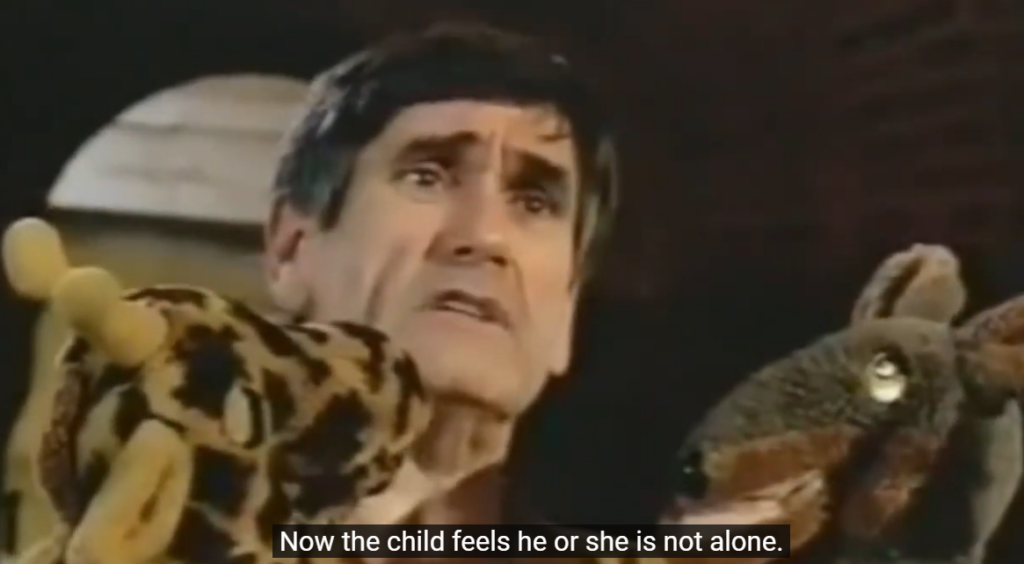Child: “I want this candy.” – Mother: “You can’t have it.”
Child: “I don’t want to go to school today.” – Mother: “You have to go to school.”
Marshall supports a mother to create a relationship with her nine-year old child. First she learns to tune into the feelings and needs of her child, then she learns to express her position with honesty and care.
Key Giraffe Differentiations
- observation vs. interpretation
- knowing vs. guessing
- should vs. I like to
- personal responsibility vs. obedience
- respect authority vs. fear authority
- demand vs. request
- I feel because (cause inside of me) vs. I feel because (cause outside of me)
Time codes
- 00:00 Marshall inviting participants to share a situation
- 00:33 Marshall clarifies who is participating in the situation – a mother and her 9-year old child
- 01:05 OBSERVATION
What does the child do? First try: the mother diagnoses the child as “very demanding.”- 01:31 Observations in Giraffe require a lot of skill – Krishnamurti lauds observing without judgment
- 02:13 Second try: Mother diagnoses a feeling in the child (knowing vs guessing a feeling)
- 02:44 Marshall helping with guesses, what the child might have been doing
- 02:53 Third try: Mother uses ‘he won’t be able to have it’ – a classical denial of choice Jackal form
- 03:23 Fourth try: Mother says she does not want the child to have a candy, because she thinks it is not good for him. In saying this she takes responsibility for her longing, and she also owns her thinking. Start of roleplay with the child.
- 03:51 Mother to her child: “I believe you should not have the candy.”
- 04:22 Jackals speak their value by using language that denies choice, such as “should”.
- 04:38 Danger of a language that denies choice. Story of the mother, who stopped cooking for the family.
- 06:50 In Jackal mode we trick ourselves into believing we have no choice, and then we lose connection with how our actions serve life.
- 07:03 In Giraffe mode we affirm choice and say: ‘I would like to’ or ‘I would like you to’ and we name the reason why or how it serves life, in our view – ‘because …’
- 07:45 Mother asks if conversation escalates, if you are not responding in Giraffe. Marshall predicts that escalation will happen, unless one jackal is REAL MEAN and pushes one side into forced obedience: “You either do it my way – or I’ll make you wish you had!”
- 08:23 In Giraffe we are clear about the difference between personal responsibilty and obedience, in Jackal we mix them up: “My child is very responsible, he does everything that I say.” A role play follows with the Giraffe educating a jackal on the key differentiation.
- 09:15 Mother wants to go to an example, that is harder than ‘candy’. “What harder, Mom?”
- 09:27 A giraffe starts her own NO with empathy. It’s through empathy that we give people the awareness, that their needs matter. And with that awareness they open up to hear about our needs as well.
- 10:15 Dialogue “I don’t want to go to school today! I hate that school.”
- 12:13 Marshall invites the mother to step into that dialogue again
- 13:01 As jackals we believe our feelings are caused by outside reasons: “I feel hurt BECAUSE YOU don’t clean up your room.” Also used to push other to do what we want them to do, by making them feel guilty.
- 14:26 Giraffes link feelings to inner wants of the person: “Are you feeling hurt, because you would like the children to treat you differently?”
- 15:13 Roleplay dialogue continues: “The teacher is mean and the children tease me.”
- 15:42 Marshall demonstrates how to respond to a ‘have to’ question
- 16:26 Fearing authority vs. Respecting authority – Giraffe parent making the difference clear in dialogue
- 16:44 Dialogue continues – Parent would like the child to wear giraffe ears
- 17:26 Example: How Marshall’s son Rick responded to a teacher who called him a ‘girl’ because of his long hair.
- 19:07 Closing the loop with the particpant
- 20:06 Parenting is the hardest application of Giraffe
More from this workshop – see here.
Notes
Breathe.

